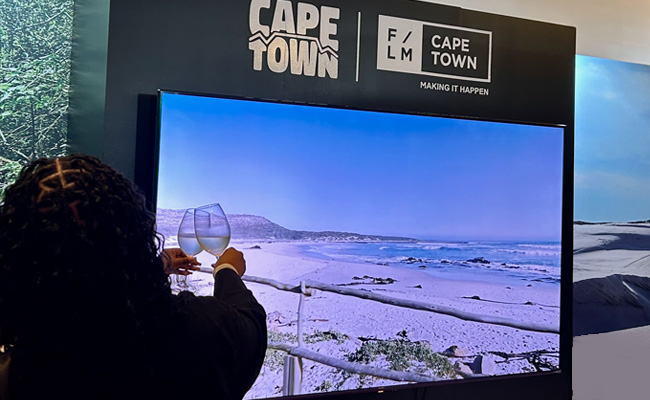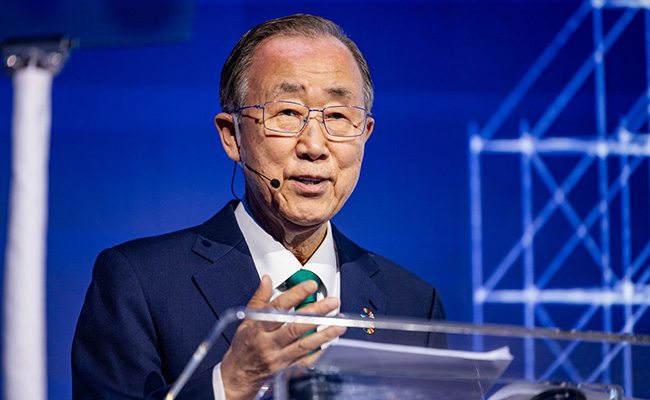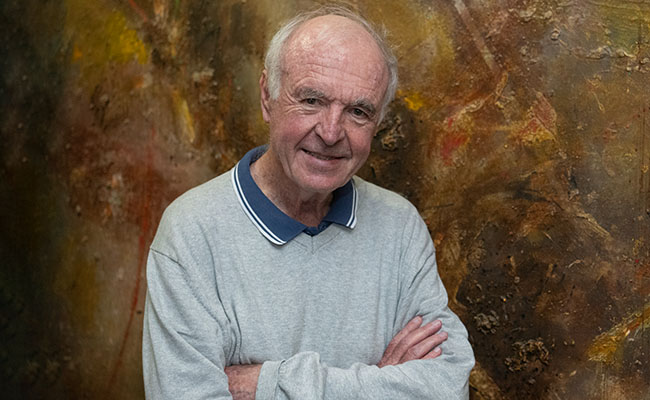“No-one is coming to save us.”
This comment, by Stained Glass TV co-founder Kobedi “Pepsi” Pokane in a session at the 2025 Durban FilmMart last week, captured the overall sentiment when 1,364 delegates from 63 countries gathered over four days to collaborate, celebrate, commiserate and capacity-build for film-making projects.
Each intense day was bookended with options of morning chill-time yoga on Durban’s North Beach and hard partying into the early hours at transformed hotel exhibition rooms, and The Chairman jazz club on Point Road.
The warning that there are no saviours was a theme of the 16th pan-African finance and co-production market, which took place amid a global decline in film funding, and a battle by independent creatives to hang on to their intellectual property amid disruptions of generative AI and turbulence in the broadcast, streaming and funding sectors.
For South Africans, another theme focused on questions around the incentive rebate programme by the department of trade, industry and competition (DTIC). The rebate has been a huge catalyst for the local industry but now lies in limbo due to adjudication committee delays and payment backlogs.
Ayanda Sibisi, interim general secretary of the Independent Producers Organisation, did not sugarcoat things, describing the industry as being in “a dire state”, with fewer films being made.
“The first issue is the DTIC rebate, because without it working, we don’t have a functional industry,” she tells Currency.
Besides the troubled rebate, she says the industry is also struggling to engage with the ministry of sports, arts and culture about governance issues relating to a key financing mechanism, the National Film and Video Fund (NFVF). In addition, the public broadcaster, the SABC, is hobbled by an unsustainable funding model. “With financial challenges, they [the SABC] are unable to pay producers for their work,” she says.
There were difficult conversations in closed sessions with government representatives at the market.

Budget constraints
The decline in funding impacted on the market programme, which was reduced amid a tighter budget, and also amid delays in receiving funds, says Magdalene Reddy, director of the Durban FilmMart Institute.
However, while overall delegate numbers were slightly down from last year’s 1,460, the market attracted delegates from more countries, up from 58 last year to 63.
In addition, 39 prizes with a total value of more than R1.5m were awarded to individuals for film project pitches at the closing ceremony, indicating that despite challenges, there is a commitment by multiple partners to make promising films become reality, says Reddy.
Despite a global climate of shrinking finance and a funding collapse in the US, Global South countries are finding a moment of opportunity. As Reddy tells Currency, “African filmmakers are asserting themselves,” reflecting the market’s 2025 theme, “Bridges, Not Borders: Stories That Unite”, which speaks directly to this development.
“Filmmakers from the Global South are realising that we’ve been taken advantage of for a long time, and are now strengthening ties with each other to be centre stage, because we realise our dependency on the North needs to be weakened,” says Reddy, adding that more co-productions are being developed with shared partnerships across the continent.
So out of chaos comes opportunity, with growing awareness of new possibilities.
The various “Talking Cents” funding sessions revealed the opening of new financing opportunities as others are closing, with demystifying sessions being held about blockchain finance and private equity partnerships.
The funding experience of a young Durban-based writer and director, Michael James, whose avant-garde social drama, God’s Work, premiered at the Durban International Film Festival – a parallel city event – illustrates one of the multilayered routes to finalise a film project.
The film was incubated with funding from the Durban Film Office, KwaZulu-Natal Film Commission, NFVF and the Presidential Employment Stimulus Programme. James tells Currency that without these government interventions, his film would not have got off the ground.
After the filming process, US-based Marco Orsini, from Mojo Entertainment LLC, stepped in with private equity to co-produce the final production process.
In what James says was a “serendipitous moment”, the two met at last year’s market. Orsini watched just 20 minutes of the first cut of three hours and 45 minutes. He knew there was a high element of risk. “I believe that Africa is the continent where there will be an explosion in film, so I thought I should put my money where my mouth is,” he says.
James blurs fiction with reality in his gritty, art-house film about a group of unhoused men who occupy a derelict house in Durban.

Going ‘hyper-local’
The film is an example of what up-and-coming Nigerian film producer Josh Olaoluwa, 31, describes as the buzzword at the market: “hyper-local”.
Just before the market, Olaoluwa completed the inaugural African Producers Accelerator – a 12-week support programme run by Big World Cinema, with the Bertha Foundation, to build sustainable production companies in a fickle, turbulent environment.
Olaoluwa is feeling energised, upskilled and upbeat about what lies ahead.
He tells Currency: “I have been hearing the word hyper-local a lot at the market, unpacking the need to focus on local, original stories and embrace them. It has made me think – how can I create localised films for a global audience?”
Olaoluwa’s work spans platforms that include Netflix, Apple TV+, MTV, Amazon Prime Video and The Smithsonian Institute. His latest film, One Woman, One Bra, shot in Kenya, will premiere at the Venice International Film Festival next month.
He believes Africa could become a continental film powerhouse, but it needs to reduce its reliance on existing distribution networks, and to find solutions within.
He describes the Nigerian film industry as “disruptive, but so exciting, with more freedom”, as it evolves from traditional Nollywood stereotypes.
“There are many new voices, new mediums. People are finding out they can do things for themselves. Storytellers are finding their voice and experimenting,” he says. “In the last two or three years, more independent Nigerian filmmakers are making it across the world, inspiring a new generation to do things differently. People are becoming more bold and fearless.”
Top image: Janet Heard.
Sign up to Currency’s weekly newsletters to receive your own bulletin of weekday news and weekend treats. Register here.













